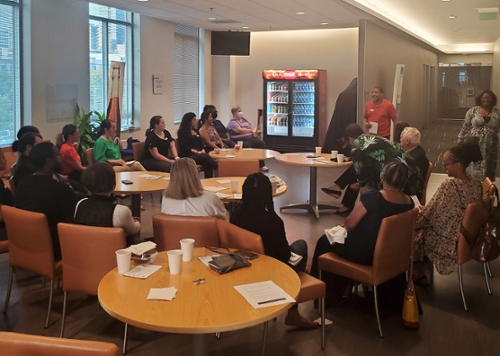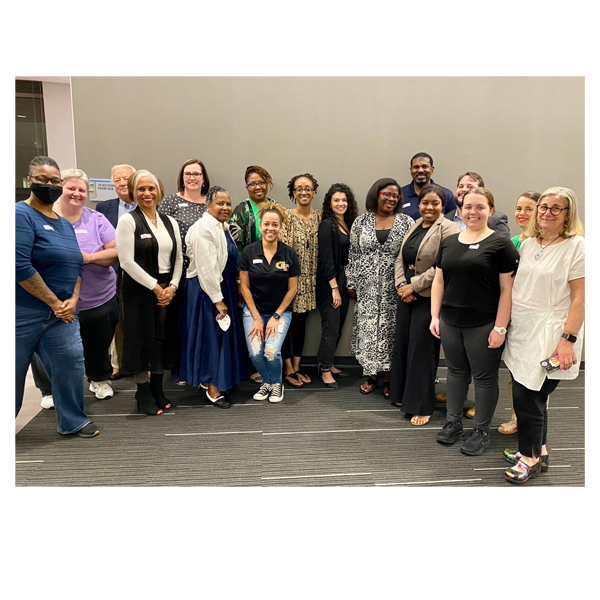On September 18, members of the Georgia Tech Scheller College of Business Diversity, Equity, and Inclusion Council hosted a session of Equitable Dinners Atlanta, an initiative geared towards community learning, inspiring anti-racism action, and meaningful connections through art and courageous conversation. Across Atlanta, the goal was to have 5,000 people attend 500 dinners with 10 people each meeting to discuss the 116th anniversary of the 1906 Atlanta Race Massacre and how Atlanta’s history connects to systemic issues today - and to inspire positive action for moving forward together in the future.
The event was coordinated by the National Center for Civil and Human Rights, Out Of Hand Theater, and the Fulton County Remembrance Commission.
The Institute for Leadership and Social Impact (ILSI), housed within the Georgia Tech Scheller College of Business, provided funding to host the event, in keeping with its commitment to support and identify needs and opportunities for social change and impact. Chuck Easley, professor of the practice in organizational behavior, and Arianna Robinson, assistant director of business operations helped organize and support the Scheller dinner.
 After spending time over a prepared meal by Imagine That Bakery & Catering, a minority-owned business, the attendees viewed a one-act play that asked the question, “Are we experiencing/doing anything differently, and if not, why?” The play was followed by a facilitated discussion that allowed participants to share their perspectives and how the play impacted them.
After spending time over a prepared meal by Imagine That Bakery & Catering, a minority-owned business, the attendees viewed a one-act play that asked the question, “Are we experiencing/doing anything differently, and if not, why?” The play was followed by a facilitated discussion that allowed participants to share their perspectives and how the play impacted them.
To manage expectations, the session then had a moment of Shared Commitments that was led by the facilitator and required the acknowledgement from all present before moving forward. Next the facilitator led a discussion that focused on four main questions to provide guidelines for respectful, safe, honest and courageous dialogue including: the visceral reaction to the play, a realization of bias, changing narratives from "massacre" to "riot," and now with more knowledge, what might one do differently to provide guidelines for respectful, safe, honest, and courageous dialogue.
Attendees came away with a better understanding of the events that occurred 116 years ago and a commitment to create opportunities to correct inaccuracies and understand an experience that may be different from their own.
Watch “What Caused the Atlanta Race Riots?” to learn more about the 1906 Atlanta Race Massacre.
